| |
Home
Famous and Fascinating Women in History
Frontiersmen and Women
The World's Greatest Composers
Famous Women Spies
Great Authors of the World
Generals and other Noteworthy People
from the Civil War
The Presidents of the United States
The First Ladies of the United States
Homes and Monuments of and to
Famous People
Historical People and Events by Month for Each Day of the Year!
Famous Figures in Black History
The Calvert Family and the Lords Baltimore
Understanding the American Revolution and its People
Everything Beatles!
Everything Maryland! |
| |
|
 
|
| |  |  |
 |  | 
Ulysses S. Grant, His Life, Family, the Civil War, and his Home
By John T. Marck
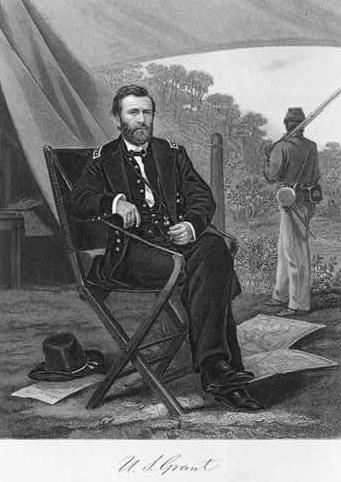
The man, who would grow to be one
of the best generals during the Civil War and President of the United
States, was born in Point Pleasant, Ohio on April 27, 1822. He
was christened Hiram Ulysses Grant, but his name change came as a
result of an error a congressman made when appointing him to West
Point.
The town of Point Pleasant is
located near the mouth of Big Indian Creek at the Ohio River. The
structure sits on 4.75 acres at the junction of U.S. 52 and S.R. 232.
Big Indian Creek is just east of the homestead. The village of Moscow
is about a mile upstream.
Grant's birthplace is a restored
one-story, three-room cottage, which was built in 1817, and was next
to the tannery where Grant's father worked. The small cottage is
furnished with period items. At one time the birthplace made an
extensive tour of the United States on a railroad flatcar and was also
temporarily displayed on the Ohio State fairgrounds.
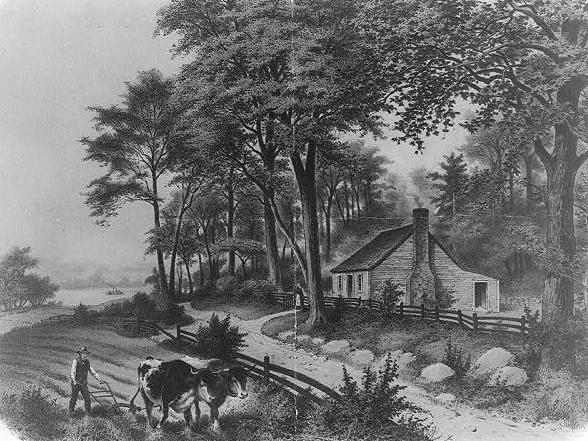
Grant's Birthplace as it
looked when he was born
The house had only one room when
Grant was born. Many of the possessions in the house are original
belongings of the Grant family. The entire family lived in one room;
the bed was stuffed with straw and sits on a rope frame. The china
cabinet belonged to Grant's mother, and there is a pair of boots in
the room that his father made. The original house had two rooms added
on after the Grants moved. The Clermont County birthplace of President
Ulysses Grant was placed on the National Register of Historic Places
in August 1998. Owned by the Ohio Historical Society, Point Pleasant
is operated by the group Historic New Richmond.
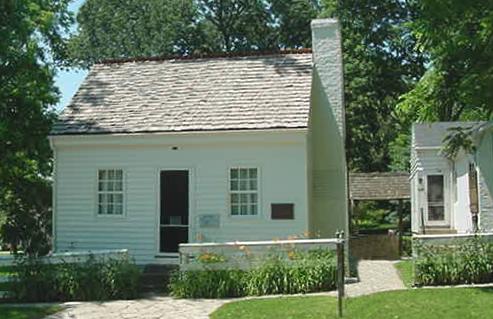
The Birthplace as it looks
today
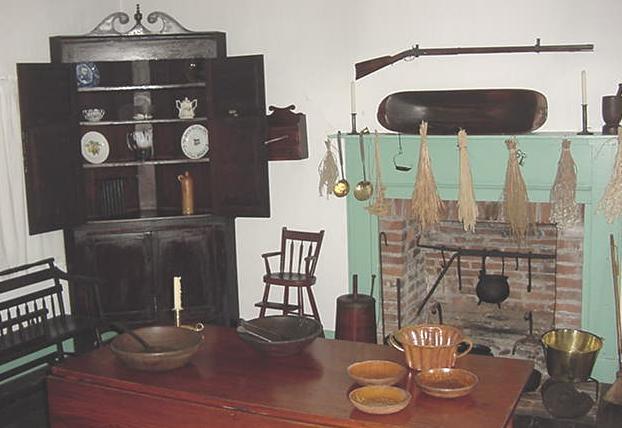
Grant's family descended from
Puritans who had come to New England in the seventeenth century.
His father was a hardworking tanner, but Ulysses was a quiet boy, who
appeared to most as one who was lethargic, almost lazy. Because
of this observation, his father, Jesse Root Grant believed him not
suited for business and secured an appointment for him to West Point,
with the help of a friend in Congress. Entering West Point in
1839, Grant did graduate in 1843, ranking twenty-one in a class of
thirty-nine cadets. Considered an average student, he exhibited
poor study habits, preferring romance novels to military tactics, but
had strong skills math and horsemanship.
His expertise with and love of
horses took him in the direction of joining the U. S. Army Cavalry
Division, but he became a lieutenant in the 4th Infantry
instead. In 1847 he fought in the Mexican War, and
although he believed the war was strictly fought for politicians who
desired territorial gains, he did have an admiration for his
commanders, including Zachary Taylor. Grant fought well in
the war, gaining respect and winning brevets for heroism at Molino de
Ray and Chapultepec.
On August 22, 1848, Ulysses married
Julia Boggs Dent, and they made their home in St. Louis, Missouri,
Julia's
hometown. Together they would have four children; Frederick Dent
(1850-1912); Ulysses Simpson (1852-1929); Ellen Wrenshall (1855-1922);
and Jesse Root (1858-1934).
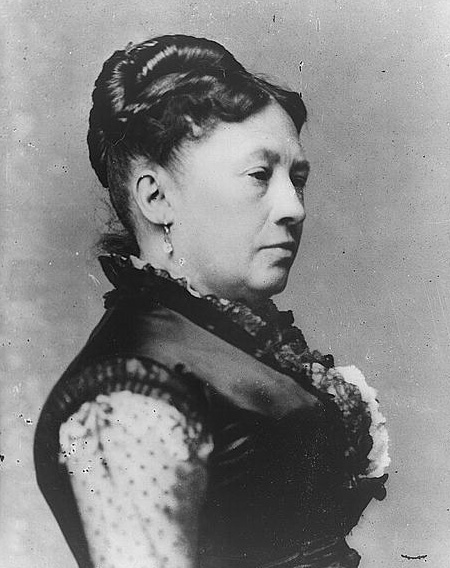
After the Mexican War, Grant was
assigned to several remote forts including Fort Humboldt in
California. Here, in 1854, without his family, boredom and
loneliness be fell him and as a result he started drinking.
Although he did indulge many times throughout his life, he drank less
than his legend would have one believe. Still, it seemed that he
would not stop his drinking until his family, friends or events in
which he was involved, intervened. In 1854, criticized by his
regimental commander as a result of his drinking at Fort Humboldt,
Grant resigned his commission as captain, and returned to his wife and
family in St. Louis.
Back in St. Louis, Grant led a
haphazard life and career, whereby he was reduced to selling firewood
on the streets of St. Louis to earn an income. Unable to find
suitable work, he was then forced to move his family to Galena,
Illinois, and relied on charity from his father, arriving in the
spring of 1860. Here Grant and his family rented a small Federal style
brick house for $100.00 a year. He had hoped to reverse his economic
misfortune by moving here, where he would work in the Galena store
owned by his father and managed by his younger brothers, Simpson and
Orvil. Grant was a clerk in name only; he spent considerable time away
from the store, traveling through the Northwest during the winter of
1860-61. They had customers in all the little towns in southwest
Wisconsin, southeast Minnesota, and northeast,
Iowa. Although in Galena he worked at a number of
different jobs, none was a success for him. Unfortunately for
the country the Civil War began, and with it Grant would finally find
his calling. Initially Grant tried to join the volunteer army but was
refused. Then, thanks to a congressman named Elihu B. Washburne,
and Governor Richard Yates, Grant was appointed a colonel in the 21st
Illinois Infantry in June 1861. An outstanding commander,
Grant soon took the disorganized 21st and whipped them into
fighting trim. For his efforts, Grant was promoted to brigadier
general.
At Belmont, Missouri, Grant
received his first command that started off well but ended in a
fiasco. Following this, Grant was placed in an administrative
post until he was able to reclaim the honor he lost at Belmont.
Returning to active service, he excelled under the command of General
Henry W. Halleck by breaking through the Confederate's
defense lines and capturing Fort Henry and Fort Donelson. At
Fort Donelson, his dazzling maneuvers as well as his refusal to accept
anything less than an unconditional surrender brought him instant
national distinction.
But Grant's military
accomplishments would come and go. On the heels of his success
at Fort Donelson, Grant and his troops were surprised by Rebels and
almost defeated at Pittsburg Landing and again at Shiloh Church,
Tennessee. The next day, Grant did drive the Rebels back, but
that was not enough to improve his image. For months, the public
condemnation of his personal habits, his dress and drinking, and his
military mistakes, damaged his career. To make matters worse,
Grant's failure initially to capture Vicksburg, due to confederate
supply-line raiders, further damaged his reputation.
By the summer of 1863, events
started improving for Grant and can be noted as finally a turning
point in his career. Using his tactical skill and relentless
attacks, Grant was able in July 1863, to take Vicksburg and the
Confederacy's division. Through this victory Grant was promoted
to major general in the Regular Army. Grant continued his
winning ways, when four months later he successfully led a mission in
the Siege of Chattanooga, and another victory at Lookout Mountain and
Missionary Ridge. Now Grant was considered the Union's
celebrated fighter. The following March 1864, President Abraham
Lincoln promoted Grant to general-in-chief, reviving the three-star
rank.
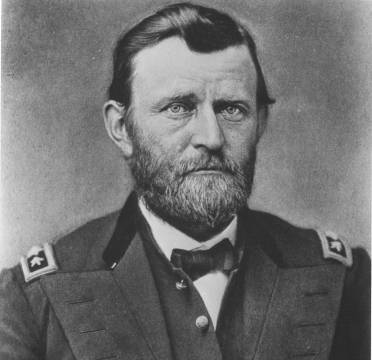
Now armed with a monstrous army and
supplies, Grant is viewed by many as one who massacred the enemy,
regardless of the cost to his men. This image however is not
true. The Union's multi-theatre operations that would follow
were carefully planned and mapped out that included General Sherman
with his operations in Georgia, General Benjamin Butler and his
operations on the James River, and General Philip Sheridan's
operations in the Shenandoah Valley. It was Grant's plan with
others, to outflank the enemy and reach their rear, whereby destroying
their communications which in turn would hinder their survival.
What Grant did in the campaigns from the Wilderness to Appomattox
(with the exception of a costly defeat at Cold Harbor) was to
outmaneuver the Confederates, rather than outfight them. While
attempting to move on Richmond, Grant decided to go around General Lee
and did so through a crafty movement, and turned instead toward
Petersburg. From this point, Grant used various incursions that
forced Lee to extend his lines so thin that they were at the breaking
point. As a result, Lee had no choice but to surrender on April
9, 1865. Grant won the war by not using force, but by his speed,
coordination, and cunning.
Compared to being an equal of
George Washington for his military abilities, after the war, Grant was
once again unable to use those talents he had in wartime. Upon
being elected president of the United States in 1869, and serving two
terms, Grant conducted himself in the same simple manner and ethics
that he had since his youth. Being naive politically, his
rudimentary view of complicated situations combined with his inability
to analyze members of his staff, brought his administration into
disrepute, resulting in corruption and scandals. Following
his presidency that ended in 1877, he traveled the world, and then
attempted several businesses that resulted in failure. To
provide for his almost destitute family, he began to write his memoirs
in the fall of 1884, after being diagnosed with throat cancer. The
cancer had spread by March 1885 and Grant moved with his family to New
York in June that year.
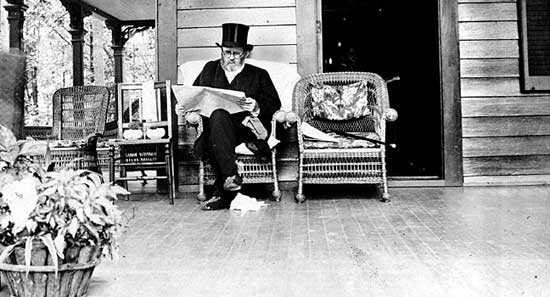
Despite great pain, he continued to
write, in hopes of finishing the memoirs as a future source of income
for his family. While suffering from his illness he completed his
memoirs only four days before he died on July 23, 1885 at Mount
McGregor, New York at the age of sixty-three. His book titled
the Personal Memoirs of Ulysses S. Grant was published after
his death in 1885. His writings encompass Grant's supreme
remembrance, and his words, like his military tactics, display a
paradoxical genius. His classic memoirs sold more than 300,000
copies earning Julia $450,000.00.
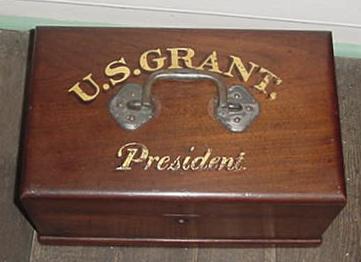 
Although the pen is mightier than the sword, in Grant's case, the pen
brought for him the fame that he had lost by laying down his sword.
Grant's wife Julia died
in Washington, D.C. on December 14, 1902. Ulysses and Julia are
buried in Grant's Tomb in New York.
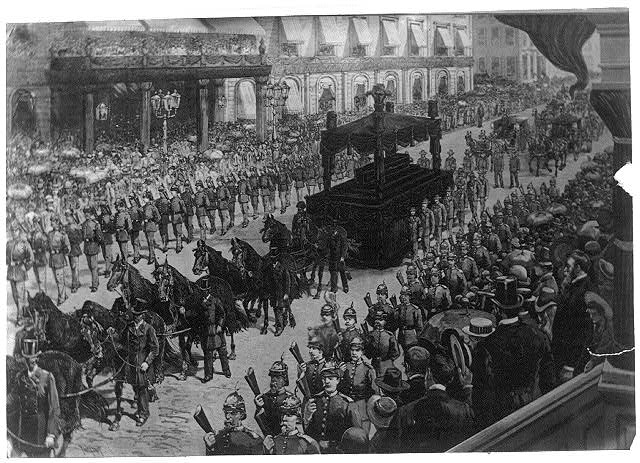
Quick
Biographical Facts
ULYSSES
S. GRANT
18th President
Term- March 4, 1869 to March 4, 1877
Republican Party
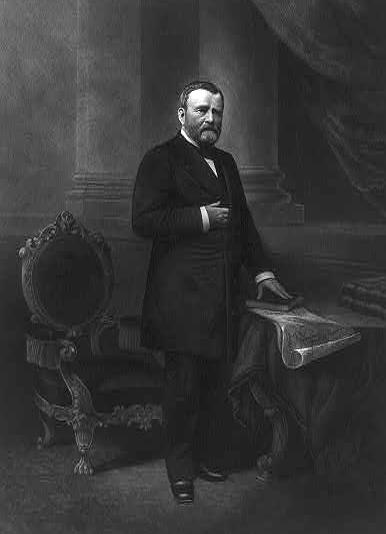
Birth: Point Pleasant, Ohio,
April 27, 1822.
Ancestry: English-Scotch.
Marriage: St. Louis, Missouri,
August 22, 1848 to Julia Boggs Dent who was born in St. Louis,
Missouri, January 26, 1826. Julia died in Washington, D.C., December
14, 1902, and is buried in Grant's Tomb, New York, New York.
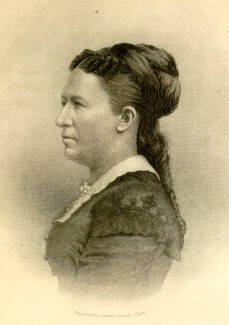
Children: Frederick Dent
(1850-1912); Ulysses Simpson (1852-1929); Ellen Wrenshall (1855-1922);
Jesse Root (1858-1934).
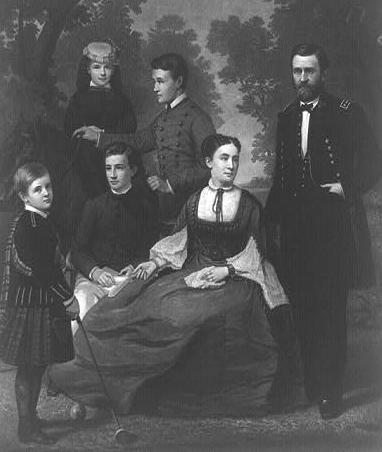
Home: Galena, Illinois;
also a cottage in Mount McGregor, New York.
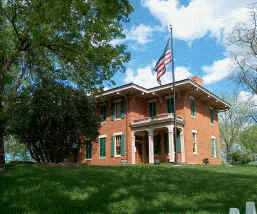

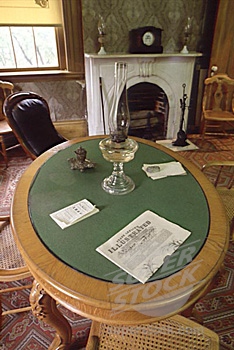
Education: Local schools,
U.S. Military Academy.
Religion: Methodist
Occupation before Presidency:
Soldier, farmer, real estate agent, customhouse clerk, and leather
store clerk.
Military Service: Commissioned 2nd
Lt. in 4th U.S. Infantry (1843), resigned at the rank of Captain
(1854), re-entered Army in August 1861 as Brig. general became
general-in-chief of Union armies on March 12, 1864.
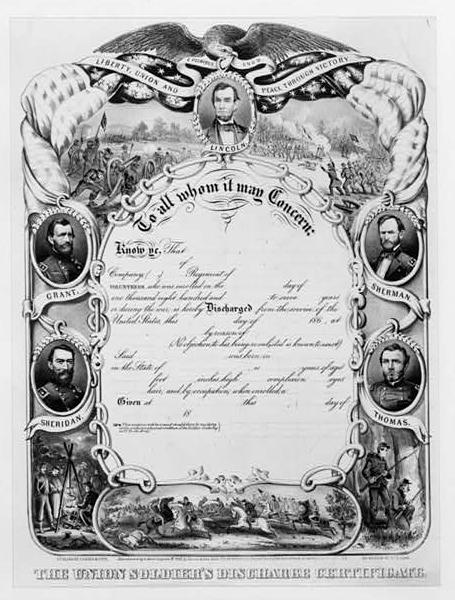
Age at Inauguration: 46
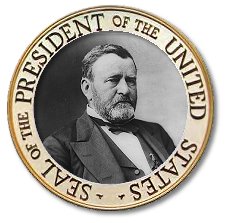
First Administration: Vice
President: Schuyler Colfax of Indiana, Inauguration March 4, 1869, The
Capital, Washington, D.C.
Second Administration: Vice
President: Henry Wilson of Massachusetts, Inauguration March 4, 1873,
The Capital, Washington, D.C.
Occupation after Presidency:
Retired; writer.
Death: Mount McGregor, New York,
July 23, 1885.
Cause of Death and Age: Cancer at
63.
Place of Burial: Grant's Tomb, New
York, New York.
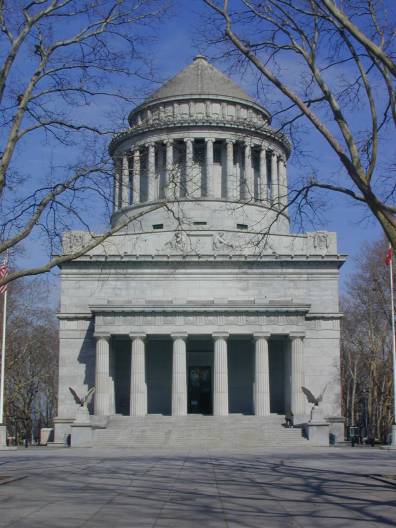
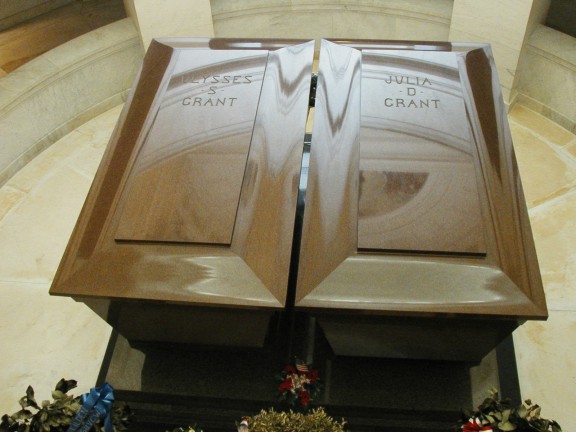
Interesting Fact:
Following the surrender of the
Confederate armies, Grant generously allowed Southern soldiers to keep
their personal weapons and horses.
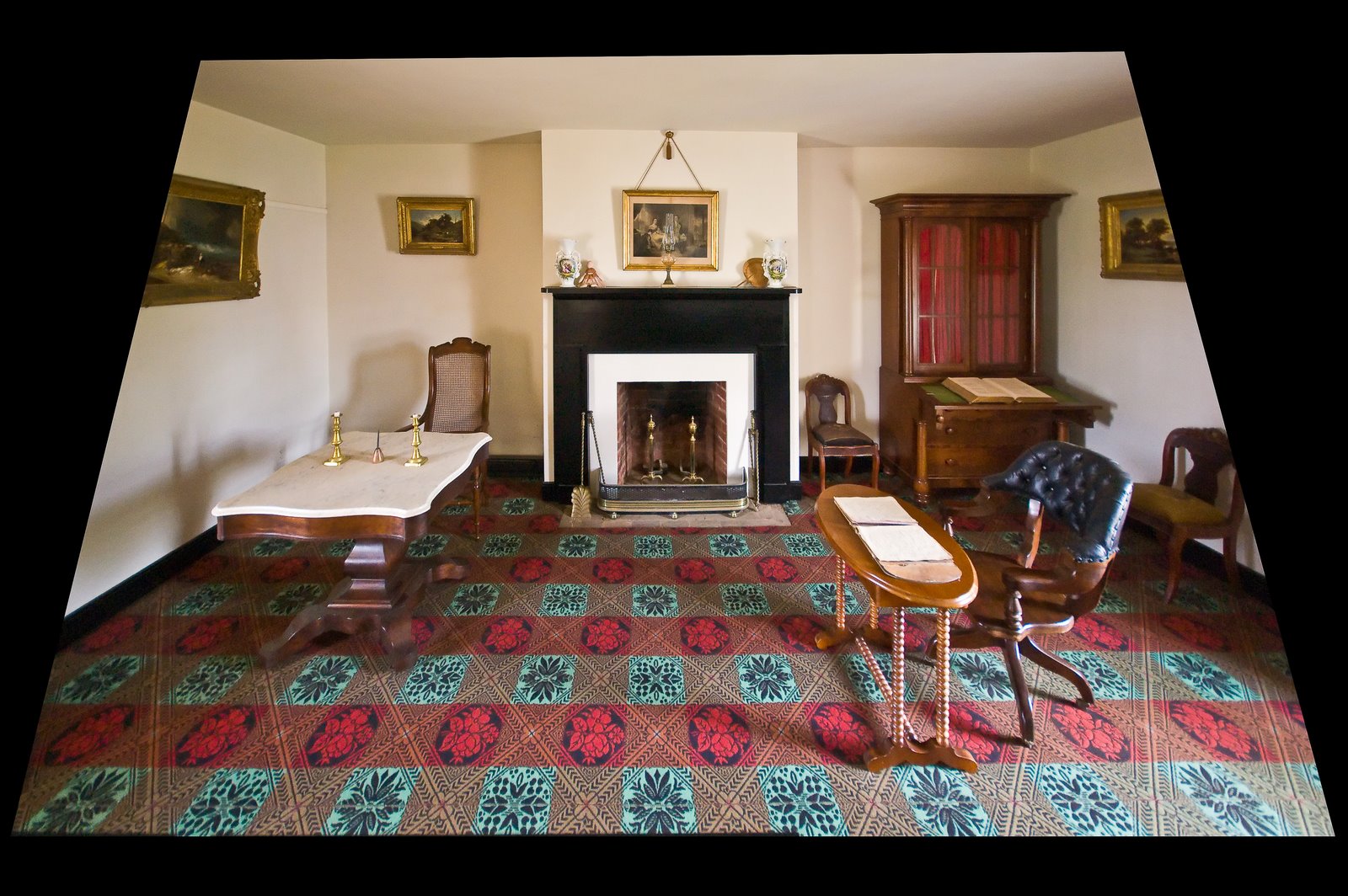
The room in which Lee
surrendered to Grant
Ulysses S. Grant Chronology
April 27, 1822: Hiram Ulysses Grant
born at Point Pleasant, Ohio and was the son of Jesse and Hannah
Grant. Ulysses was the oldest of six children having three sisters and two
brothers.
May 29, 1839: Arrived at the U.S.
Military Academy at West Point, N.Y. A mistake in the records changed
Grant's name to Ulysses S. Grant, which he carried the rest of his
life.
June 1843: Graduated from West
Point.
1846-1847: Fought in the
American-Mexican War.
August 22, 1848: Married Julia Dent
of St. Louis, Missouri.
May 30, 1850: Frederick Dent
Grant born.
July 22, 1852: Ulysses S. "Buck"
Grant Jr., born.
June 11, 1854: Grant resigns from
the army. The letter of resignation was written on the same day he was
promoted to captain and was accepted by the Secretary of War,
Jefferson Davis.
July 4, 1855: Ellen "Nellie"
Wrenshall Grant born.
February 6, 1858: Jesse Root Grant,
born.
Spring, 1860: Grant arrives in
Galena, Illinois.
April 18, 1861: Fort Sumter fired
upon by Confederates.
June 17, 1861: Grant becomes a
colonel for the 21st Illinois Volunteer Infantry Regiment.
February 17, 1862: Lincoln signed
the papers for Grant's promotion to major general of volunteers.
March 1864: Promoted to
general-in-chief of the Army.
April 9, 1865: General Lee
surrendered the Army of Northern Virginia to Grant at Appomattox Court
House in Virginia, ending the American Civil War.
August 18, 1865: Returns to Galena
as a hero and is presented his new home on Bouthillier Street.
July 25, 1866: Grant appointed
general of the armies of the U.S.
August 12, 1867: Appointed
Secretary of War.
November 3, 1868: Grant and
Schuyler Colfax elected President and Vice-President.
March 2, 1872: Signs a bill, which
makes Yellowstone the first National Park.
November 3, 1872: Grant and Henry
Wilson elected President and Vice-President.
March 4, 1877: Retires from the
White House.
May 1877: Ulysses, Julia and Jesse
Grant travel on a world tour. They return on September 20, 1879 at San
Francisco. They return to Galena in November of that year.
December 1882: President Arthur
appointed Grant to negotiate a commercial treaty with Mexico. The
treaty; however, was rejected by the U.S. and Mexico.
June 16, 1885: Grant family moves
to a cottage at Mount McGregor, New York.
July 19, 1885: Finishes his
personal memoirs.
July 23, 1885: Ulysses Grant dies
at age 63 of throat cancer at Mt. McGregor, New York.
April 27, 1891: Ground is broken
for the construction of Grant's Tomb, Riverside Park, New York City.
April 27, 1897: Grant's Tomb is
dedicated.
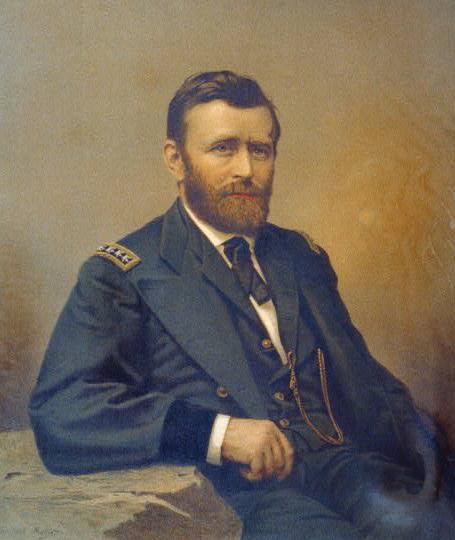
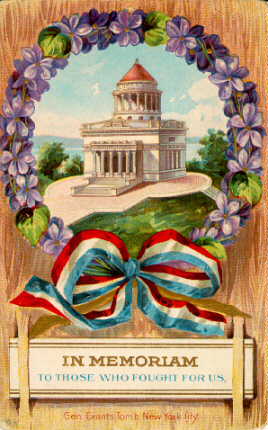
Copyright © 1992-2022 by
John T. Marck. All Rights Reserved. Informational
assistance from Grant's Birthplace, Point Pleasant, Ohio Historical
Site and the Grant Galena, Illinois Historical Site. Additional
information from
"The
Presidents of the United States,"
by John T. Marck, 1993-2004.
A
Splendid Time Is Guaranteed For All
| | |
| |
|

